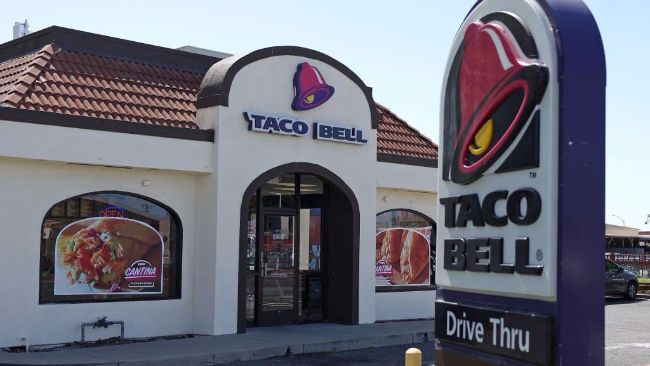The Depin Revolution comes to a fast food franchise near you. The movement that started with helium and spread to countless categories, including maps and car data, is now expanding to the hospitality industry this year. The initiative shows how quickly Depin’s – or decentralized networks of physical infrastructure – become mainstream.
The fast food and hospitality industry, often associated with consistency and efficiency, is quietly upgrading as decentralized technologies find their way to the mainstream. Depin acceptance by large franchises such as Taco Bell and KFC indicates a shift in the way these companies operate and deal with technology.
The core of this transformation is the integration of Depin devices-sensors, routers and other physical infrastructure-made possible by blockchain and tokens-based stimuli. These networks enable companies to contribute to shared ecosystems, while gaining real -time operational insights and are rewarded for their participation. It is a progressive approach that combines advanced technology with the practical needs of fast food and catering establishments, which releases the road for greater efficiency, sustainability and customer satisfaction.
With Depin, industry embraces a strategic evolution – one that reflects the growing potential of decentralized technologies to improve traditional models and at the same time create new growth opportunities.
The potential benefits of Depin are considerable for franchisees. By integrating Depin devices into their activities, they can unlock a wealth of options:
- Improved operational efficiency: Depin devices, such as Air Quality sensors from Ambient Network, can provide real-time information about the environmental conditions. This information can be used to optimize HVAC systems, improve air quality indoors and to reduce energy consumption.
- Increased customer satisfaction: By using Depin -based solutions, franchises can offer a more personal and useful customer experience. For example, implementations of indoor mobile locations of Helium Mobile or Xnet can offer reliable connectivity, while blockchain -based Supply Chain Management can guarantee product quality and freshness.
A case study: the power of cooperation
A good example of Depin’s impact on the franchise industry is the collaboration between large fast food chains and Ambient Network, the largest decentralized air quality network on Solana. By using air quality sensors in hundreds of stores, from coast to coast, these franchises not only improve air quality for their customers, but also contribute to a cleaner environment. Moreover, they generate valuable data insights that can be used to optimize business operations and reduce costs.
“With the growing maturity of tokens and decentralized technologies, we see a shift in the way in which we can use these assets in our stores and property,” explains Pushpak Patel, founding principal at CMG Companies, one of the greatest operators of KFC, Taco . Bell, Sonic, Little Caesars, Rent-A-Center and ACE Hardware franchises in the US.
“By installing 1,000 Depin devices from Ambient Network, we increase our ability to collect operational insights about our locations. Installing air quality sensors not only produces real-time conditions, both inside and outside; It also enables us to participate in demand response programs. And with the strategic density of our locations we can help access to greater coverage for the network, which in turn generates extra data insights. This is a game changer. “
Franchisees can collaborate with third parties to use and manage the infrastructure, or they can manage the devices internally to improve operational efficiency with the devices and possibly generate an excellent return on the investment. With Helium, these participants in the implementation see a ROI from a few dollars to dozens of dollars per day based on factors such as location, mining density and network demand.
Parami Investors, one of the largest providers of helium and ambient devices in North America, is also optimistic about Depin’s possibilities for franchiselocations. We clearly see greater acceptance by retailers and hospitality providers to adopt and use decentralized solutions such as Helium and Ambient. Ambient is now deployed in very dense commercial shopping and food centers such as the Japanese Village Plaza in the Little Tokyo district in Los Angeles, hotels such as the Best Western in Las Vegas and fast food chains such as Taco Bell, KFC and Five Guys. Revolutions start on the street, where franchisees push the boundaries for broader acceptance by companies.
The way forward
As Depin technology develops further, we can expect even more innovative applications in the franchise industry. From decentralized energy networks such as PowerLedger and loyalty-based solar energy from GLOW, loyalty programs from Hangen on Blockchain: the possibilities are endless.
For fast food retailers and franchisees, Depin devices are not just a technological trend; It is an investment in a more efficient, more profitable and more sustainable future. From generating passive income to the collection of valuable data and optimizing activities: the benefits are clear. As the technology continues to develop, franchisees and other small companies will find even more ways to use Depin devices to improve both the customer experience and their operating results.
Decentralized solutions build an ecosystem that benefits everyone, and stimulate participation through stimuli. And Depin devices are an important part of that vision. By embracing these new technologies, franchisees are preparing for long -term success, so that they remain competitive in an ever -changing market.

